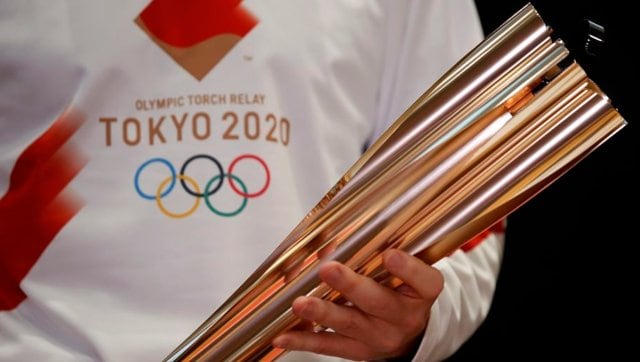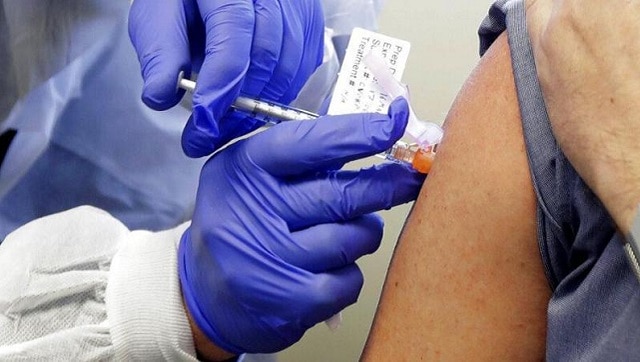Tokyo Olympics 2020: Torch relay not just a sideshow in time of COVID-19
Social distancing, mask-wearing and limited crowds that are prohibited from loud cheering will be the order when the relay starts from Fukushima prefecture.

The start of the Tokyo Olympics torch relay will be from Fukushima, that was devastated 10 years ago by an earthquake and tsunami. AP
Tokyo: The Olympic torch relay is usually just a sideshow for the real thing; the prelude, the buildup, the warm-up act that could be skipped.
Not this time. All eyes will be on the torch relay when it begins on Thursday from northeastern Japan, headed to the opening ceremony of the postponed Tokyo Olympics on 23 July: 121 days with 10,000 runners expected to crisscross Japan's 47 prefectures.
The relay could be the "canary in the coalmine" for attempting to hold the Olympics in four months despite the pandemic. Social distancing, mask-wearing and limited crowds that are prohibited from loud cheering will be the order when the relay starts from Fukushima prefecture.
If the relay has problems, if COVID-19 cases pop up and if there are delays, it could send up red flags about the feasibility of holding the Olympics.
cases pop up and if there are delays, it could send up red flags about the feasibility of holding the Olympics.
Here's how seriously it's being taken: Toshiro Muto, the CEO of the organising committee and a former deputy governor of the Bank of Japan, is in charge of the relay and not a secondary department head.
It was exactly at the start of the relay a year ago that the Olympics were postponed because of the coronavirus pandemic. It was the first postponement since the modern Olympic began in 1896.
pandemic. It was the first postponement since the modern Olympic began in 1896.
HOPE LIGHTS THE WAY
This is the event that organisers and the International Olympic Committee hope will help turn public opinion in Japan in favour of the Olympics. The slogan for the relay is "Hope Lights the Way." The notion is that the Olympics will be uplifting and a light at the end of the tunnel, which will allow Japan and the IOC to bask in the glow of the world returning to near-normal.
Sentiments expressed in polls in Japan so far are overwhelmingly negative with about 80% suggesting another delay or cancellation.
“We are fully aware that there still are people with anxieties around the Tokyo Olympic games,” Muto said Wednesday. He said people should be encouraged since many sports events in Japan are being held with fans attending.
The relay and the Olympics both stir fear that they could spread the virus. There is also opposition to the rising cost of staging the Olympics, now put officially at $15.4 billion. Several audits suggest it's twice that much and a University of Oxford study says these are the most expensive Olympics on record.
REBUILDING FUKUSHIMA
The start of the relay will be from Fukushima prefecture, the area of Japan that was devastated 10 years ago by an earthquake, tsunami and the related meltdown of three nuclear reactors. At least 18,000 died in the tragedy of 11 March, 2011.
Until the Olympics were delayed for a year, the focus on the relay was to be on the rebuilding of the northeastern area. Much is still left to be done. Since the postponement, much of the public-relations focus has shifted to the global recovery from the pandemic.
Organisers are again trying to incorporate the rebuilding of the area into their messaging, aware that some residents feel the area has been overlooked and that the Olympics have siphoned off resources.
Seiko Hashimoto, the president of the Tokyo organising committee, said Wednesday she hopes the relay will inspire “the affected people who still struggle to normalise their lives.”
EXTREME MEASURES
The so-called Grand Start of the relay on Thursday will be closed to the general public. Extensive precautions are in place, which includes limiting the size of the staff coming from Tokyo. The capital is where COVID-19 has been most severe, and the fear is that the relay could spread it to rural Japan.
has been most severe, and the fear is that the relay could spread it to rural Japan.
There was talk at first of cancelling the relay. But it is heavily sponsored by Toyota and Coca-Cola. The relay was first rolled out in the 1936 Berlin Olympics.
“We will work in close collaboration with the municipalities to avoid density along the roadside routes and venues to have a completely safe operation,” Hashimoto said.
FIRST RUNNER
The first runner will be Norio Sasaki, who coached the Japanese team to football's women's World Cup title in 2011. About 15 members of the team will also run during the first day, although Homare Sawa, captain of the 2011 winning team, withdrew with unspecified health reasons.
The relay starts from J-Village, which is a national football training center located in Fukushima. It was used as a staging area for relief work during and after the catastrophe.
“The power of sports is something that can be delivered to not only Japan but to the world,” Sasaki said. "That is the mission and responsibility I feel is expected of us. That is the passion I will be carrying with me as I run the torch relay tomorrow.”
Subscribe to Moneycontrol Pro at ₹499 for the first year. Use code PRO499. Limited period offer. *T&C apply
also read

Tokyo Olympics 2020: 'Difficult' to have athletes' families at Games, says organising committee chief
The comments came as reports said Japan's government has decided to exclude overseas fans from the coronavirus-delayed Games to reduce the risk of outbreaks

Tokyo Olympics 2020 torch relay among final hurdles for postponed games
The torch relay, which starts in two weeks, is yet another hurdle for the postponed Tokyo Games. Any stumble could sow more doubts about the risk of holding the Olympics in a pandemic.

Tokyo Olympics 2020: US athletes to be vaccinated 'well before' Olympics, confirms USOPC chief
Some 62 million people in the United States have received one or more doses of the vaccine, about 19 percent of the adult population, while the White House has targeted inoculating the adult population of 270 million people by May.
